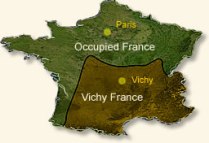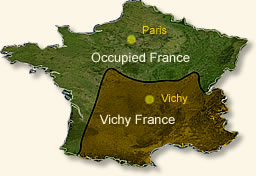1/3/2019, “80 Percent of French Back Yellow Vest Citizen Referendum Initiative Proposal,” Breitbart, Chris Tomlinson

Image: Yellow Vests carry RIC banner, “Citizens’ Initiated Referendum“, undated, AFP
“According to a new poll, 80 percent of the French public support a proposal backed by the Gilets Jaunes (Yellow Vests) movement that would allow citizens to propose referendums that would create new laws.
The Citizen Initiated Referendum (RIC) would allow French citizens to propose their own laws that would then be voted on by the general public in a referendum that could effectively bypass the French parliament, broadcaster RTL reports.
According to the Yellow Vest movement, the RIC would not be limited to just proposing new laws but would have several other functions including repealing existing laws and referendums on amendments to the French constitution.
The movement also backs the idea of a RIC to, “dismiss any politician, the president, a minister, a deputy or any other elected official,” which given French President Emmanuel Macron’s historic low approval ratings could put his position as French leader in jeopardy should such a referendum occur.
“Protests took place outside French Mainstream Media Headquarters https://t.co/Ymiag7YBfA— Breitbart London (@BreitbartLondon) December 29, 2018″
Supporters of the populist Rassemblement National (RN) led by former presidential candidate Marine Le Pen, along with the far-left France Insoumise of Jean-Luc Melenchon, both overwhelmingly support the proposal while members of Macron’s Le Republique En Marche! (LREM) are less enthusiastic.
In his New Year’s speech, President Macron announced his government would be launching a “grand debate” on the future direction of the country and address the concerns of the Yellow Vests.
The respondents of the RTL poll showed far less enthusiasm for Macron’s proposal with 50 percent saying they believed the government would take into account the opinions of the French citizenry and 47 percent saying the Macron government would likely ignore their concerns.
Some have expressed concerns about the RIC proposal and the consequences of more direct democracy in France such as LREM MP Stanislas Guerini who said he feared the return of the death penalty which was abolished in France in 1981.
Despite giving in to the initial Yellow Vest demands and scrapping the proposed fuel tax hike and raising the minimum wage among other measures, President Macron continues to face opposition from the movement who he also referred to as a “hateful crowd” in his New Year’s speech.”
……………………………..
Added: More on RIC from France24:
12/17/2018, “‘Yellow Vests’ open a new front in the battle: Popular referendums,” France24.com
“Many of the “Yellow Vests” who hit the streets again on Saturday wielded signs with the acronym RIC – for “Citizens’ Initiative Referendum” – as demonstrators demanded popular votes be held to allow citizens to vet government policy proposals.
In a list of demands released in late November, the Yellow Vests ask that any policy proposal garnering 700,000 signatures trigger a national referendum to be held within a year. The RIC is one item on a list of 42 measures being demanded by the Yellow Vests.
A 2008 constitutional amendment provided for holding a referendum if a measure had the support of one-fifth of the members of Parliament and the backing of one-tenth of registered voters. But the citizens’ initiative has never been used, despite the launch of a website dedicated to listing the public proposals currently under debate.
Several of the 2017 presidential candidates were vocal supporters of popular referendums, notably far-left firebrand Jean-Luc Mélenchon and far-right leader Marine Le Pen. Socialist Party candidate Benoît Hamon also proposed a measure that would have called on Parliament to debate any proposal that received support from at least 1 percent of the electorate.
An RIC system already exists in some countries, notably Switzerland, where voters are regularly called upon to vote on policies. Italy’s constitution calls for a vote to be held if a proposal gets 500,000 signatures or is backed by at least five regional councils.
Those Yellow Vests who support holding public referendums nevertheless differ on the mechanics, with some arguing the public votes should merely inform government policy (with no obligation on the part of the government to implement them) and others insisting the will of the people should automatically become policy.
There have also been suggestions for setting up a platform to allow citizens to submit their own policy proposals; those that garner a certain number of signatures online would then proceed to a vote.
And so far the government seems at least somewhat amenable to the idea.
In an interview with Les Echos newspaper published online Sunday evening, Prime Minister Édouard Philippe said the government had “made mistakes", among them that it had “not listened enough to the French people”.
He said there were plans to debate holding referendums on government policy, adding that they could be a “good tool for a democracy”.
The French government is likely hoping that the recent decline in Yellow Vest protesters indicates that the most direct challenge so far to Emmanuel Macron’s presidency may finally be losing steam. The interior ministry estimated some 66,000 people demonstrated across France for a fifth straight Saturday on December 15, down from 125,000 the week before.
Macron’s approval rating has dipped to 23 percent over the last month, according to a poll published Sunday in the Journal du Dimanche weekly. In an effort to defuse the crisis Macron has already announced a series of measures, including a €100 monthly increase in the minimum wage and reducing some taxes on low-income pensioners. On December 5 the government abandoned plans for the tax hike on fuel that first ignited the protests.”
…………………………..
Added: 7 Yellow Vests images, AP, AFP

Above, Crowd near Eiffel Tower, Sat., 2/23/19, AP

Above, Yellow Vests carry sign, “We are against anti-Semitism,” undated, AFP

Above, Trocadero Plaza near Eiffel, police use tear gas, undated, AFP

Above, Yellow Vests carry RIC banner, “Citizens’ Initiated Referendum“, undated AFP

Above, French police with shields, 2/23/19, “Local authorities in the central French city of Clermont-Ferrand urged residents on Saturday to avoid downtown, where 2,500 yellow vest protesters clashed with police forces,” AFP

Above, general street scene with tear gas, undated, AFP

Above, “A wheelchair bound protestor passes alongside marchers during an anti-government demonstration in front of The Opera de Paris Palais Garnier in Paris,” undated, AFP
Above images are from article below:
2/23/19, “Thousands of yellow vest protesters take to the streets across France for a 15th weekend running…,” Daily Mail and AP, James Billot
[I removed the following editorial text from headline: “as they try to re-invigorate supporters while trying to stamp out violence and anti-Semitism in the movement’s ranks.”
..........
 Map from “France in Defeat, 1940.″ Hitler defeated France but allowed them to in effect "play house" in a southern portion of France known as Vichy.
Map from “France in Defeat, 1940.″ Hitler defeated France but allowed them to in effect "play house" in a southern portion of France known as Vichy.Vichy associates are by definition anti-Semitic but are desperate to divert attention from themselves so they and their bomb-thrower media accuse Yellow Vests, of being ”anti-Semitic.” This means the Establishment can’t think of a single justification for its existence except to effectively claim, Oh yeah? You’re anti-Semitic and we’re not. Yellow Vests on the other hand have offered a substantive solution to unite France with RIC, Citizen Initiated Referendums. That’s what this article should’ve been about.]

Above, Yellow Vests carry sign, “We are against anti-Semitism,” undated, AFP
Added: More on Vichy and the French Establishment:
“It was not until [President Francois] Mitterand retired in 1995 that France began to face up to its responsibility in the persecution of Jews.” Mitterand had been a Vichy official:

Map from “France in Defeat, 1940.” Hitler easily defeated France in WWII. Until the War was completed, he divided France into two sections, the southern portion called Vichy. French personnel were allowed to be nominally in charge of Vichy until the war ended.
2/17/2011, “The Vichy Policy on Jewish Deportation,” BBC, Paul Webster
[Scroll down): “Post-war indifference to anti-Semitic persecution pushed the issue into the background until Serge Klarsfield, a Jewish lawyer whose Romanian father died in Germany, reawakened the national conscience. He tracked down the German chief of the Secret Service in Lyon, Klaus Barbie, who was hiding in Bolivia but was subsequently jailed for life in 1987. His case threw light on Vichy’s complicity in the Holocaust.
Klarsfeld’s efforts were frustrated by the Socialist president of France at this time, Francois Mitterrand, who had been an official at Vichy and was decorated by Pétain. It was not until 1992 that one of Barbie’s French aides, Paul Touvier, who had been a minor figure in wartime France, was jailed for life for his crimes
(subhead, Facing Facts): French courts, responding to Mitterrand’s warnings that trials would cause civil unrest, blocked other prosecutions, including that of the Vichy police chief, René Bousquet, who organised the Paris and Vichy zone mass arrests. He was assassinated by a lone gunman in June 1993.
It was not until Mitterrand retired in 1995 that France began to face up to its responsibility in the persecution of Jews. When the new right-wing president, Jacques Chirac, came to power, he immediately condemned Vichy as a criminal regime and two years later the Catholic Church publicly asked for forgiveness for its failure to protect the Jews.
But the most significant step forward was the trial in 1997 of Maurice Papon, 89, for crimes concerning the deportation of Jews from Bordeaux. He had served as a cabinet minister after the war, before losing a 16-year legal battle to avoid trial. He was released from jail because of poor health, but his ten-year prison sentence has been interpreted as official recognition of French complicity in the Holocaust, although there are still those who continue to defend his actions.
Since the trial, France has opened up hidden archives and offered compensation to survivors – and ensured that schools, where history manuals used not to mention France’s part in the deportations, now have compulsory lessons on Vichy persecution. While anti-Semitism is still a social problem in France, there is no official discrimination, and today’s 600,000-strong Jewish community is represented at every level of the establishment, including in the Catholic Church, where the Archbishop of Paris is Cardinal Jean-Marie Lustiger.
In 1942, while on the run from the French police, Lustiger converted to Catholicism, but three years later was told that his mother had died in the Auschwitz gas chambers. It seems fitting that he presently (June 2003) occupies such an important position within French society.”
………………………….
Added: French Establishment attempts to smear Yellow Vests as anti-Semitic:
2/21/19, “French ruling elite attacks “yellow vests” while claiming to fight anti-Semitism,” Worldwide Socialist Website, Alex Lantier
………
Among comments to above article at WSWS:
“rictus. 19 hours ago-The timing of this incident is impeccable; a timing so perfect that a question that must be asked is “Cui Bono?” (Who benefits?). It wouldn’t surprise to find out a police provacatuer or undercover state agent was behind it. What better way for Macron to regain the high-road by posturing outrage over anti-Semitism (but not over Vichy) to discredit the Giles Jaunes?”
.............

No comments:
Post a Comment